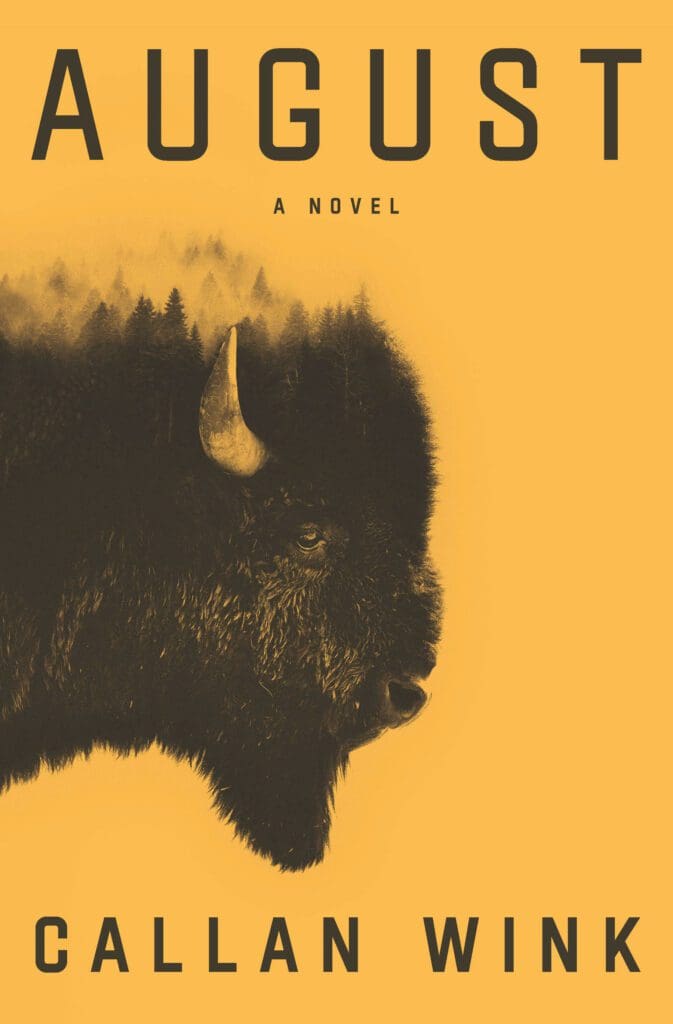August (304 pages; Random House), Callan Wink’s first novel and second book following his story collection, Dog Run Moon, opens on a collection of cat tails chopped from tabby corpses in a Michigan barn. The 12-year-old boy responsible for this violence, the titular August, is paid per tail, proof he’s killed a feral cat. And so Wink launches us into a turbulent coming-of-age story punctuated by donuts performed drunk outside a Hutterite colony and the pregnant pauses on the phone between the protagonist and his emotionally distant father. While August’s inner turmoil is often opaque, the novel offers an uncannily sympathetic and human portrayal of a struggling youth.
August soon grows into a tall, well-built, and reticent teen, living on a dairy ranch with his parents: his mother, a progressive, anxious woman ready to get-on-with-it, and his father who offers little other than platitudes about women. On the ranch sits an old house and a new house, and after his father’s promiscuity is revealed, August’s parents retreat separately to each. The split sets a tone for August’s future, fumbled romances.
At a summer bonfire in the boondocks, a boozy party leads to a horrendous act by his classmates that August almost takes part in. He ends up running through the forest in a drunken haze, and though he finds a way out, the novel shows how he never really stops running, as an unstated but inescapable guilt settling onto his shoulders.
August leaves town, and ends up laboring on a Montana ranch not unlike his father’s ranch in Michigan. While working on the Montana ranch under Ancient, his boss, August is torn between the new and the old: inherited grudges and budding friendships, a dying ranching business and college applications. Stuck, not knowing whether to move forward or backward, August lives in an understated existential limbo on the ranch. At one point he compares life to eternal imprisonment.
Wink’s prose is simple and unadorned. He expresses with pleasing authenticity the fidgety conversations between a father and son struggling to connect, the vacant eyes of a friend muddled by hard liquor and despair, and the nervously chuckled apologies of the day after. The details make the story utterly believable, and for that reason, a pleasing and fascinating read. With August, Callen Wink imitates life with deftness and style, further distinguishing him as a rising writer.

